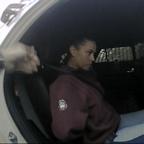State attorney says arguments don't prove 'actual conflict'
Adam Abbate, an attorney with the district attorney's office, argued that defendants had failed to meet the "high standard of proof" for disqualification -- calling the narrative they spun about Willis and Wade's relationship "absolutely absurd."
"It doesn't make any sense," Abbate said. "The motions to disqualify should be denied, and Miss Willis as district attorney of Fulton County, and Mr. Wade, as the special prosecutor assigned to this case, should be allowed to remain on this case and continue to prosecute the case."
Contrary to what defense attorneys argued, Abbate argued that they must prove an "actual conflict" of interest to secure a disqualification -- not just the "appearance of impropriety."
"The defense has to show an actual conflict, and in this instance, they have to show in the actual conflict would be that Miss Willis received a financial benefit or gain -- and got it based upon the outcome of the case," Abbate said.
"We have absolutely no evidence that Miss Willis received any financial gain or benefit," he argued. "The testimony was that Miss Willis paid all of the money back in cash as related to the trips."
Judge McAfee seemed skeptical of that argument, citing language that allows for removal based on the "appearance of impropriety" and referencing examples of past misconduct raised by the defendants.
Abbate pushed back, arguing that in each of those cases, the "appearance of impropriety ... arose from the fact that the court found an actual conflict in each of those cases."
Abbate also called into question the credibility of defendants' key witnesses in the disqualification hearings, calling the testimony of Robin Yeartie, ex-friend of Willis, "at best inconsistent."




